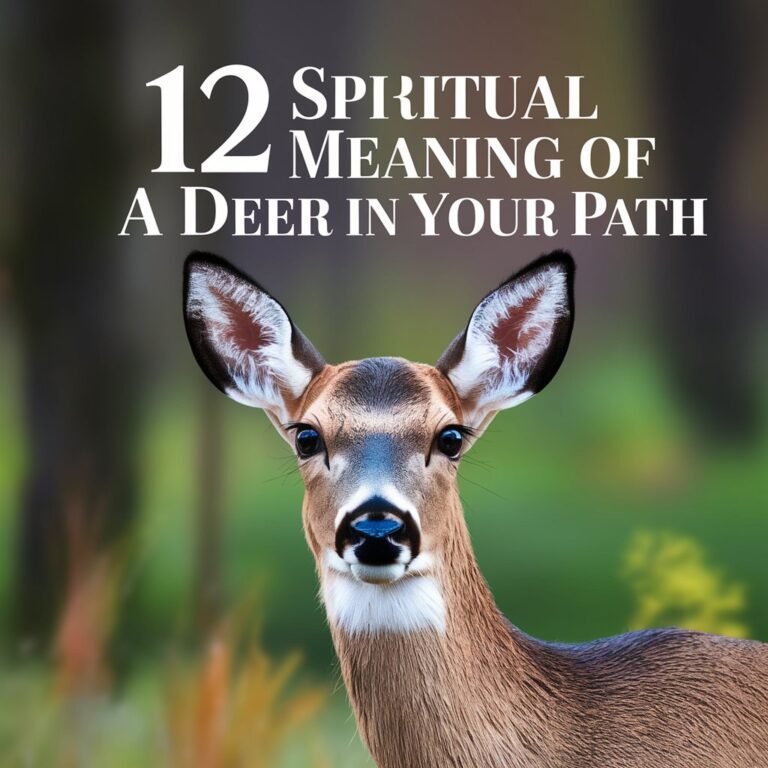10 Spiritual Meanings of Pharaoh
When we examine the spiritual meanings of the Pharaoh, we uncover layers of significance that go beyond mere historical figures. They represent divine authority, acting as intermediaries between the human and the divine domains. Their role as guardians of the afterlife reflects a profound connection to cycles of life, death, and rebirth. With symbols like the lotus and scarab, we're reminded of transformation and renewal. Yet, these meanings also urge us to explore deeper concepts like balance and community. What else might we uncover about their legacy that resonates with our own spiritual journeys?
In a Nutshell
- The Pharaoh embodies divine kingship, connecting the mortal realm with the divine, maintaining cosmic order and harmony in society.
- As guardians of the afterlife, Pharaohs facilitate connections between the living and spiritual realms through rituals and offerings.
- Symbols like the lotus and scarab represent transformation and renewal, reflecting the cycle of rebirth and human experiences.
- Pharaohs exemplify humility and compassion, emphasizing the importance of collective responsibility and interconnectedness among people.
- The grandeur of pyramids and temples serves as a testament to cultural heritage, inspiring ongoing exploration of shared humanity and spiritual growth.
Divine Connection and Authority
Exploring the divine connection and authority of the Pharaoh reveals a tapestry woven with threads of spirituality and power. We find ourselves drawn to the notion of divine kingship, an ancient concept that speaks to our longing for guidance and unity. The Pharaoh, a living embodiment of sacred rulership, stands as a bridge between the heavens and the earth, a beacon of hope that reassures us of a greater purpose.
As we investigate deeper, we sense the weight of this authority, not merely as a crown upon the head, but as a mantle of responsibility. The Pharaoh's connection to the divine isn't just a title; it's a profound relationship that shapes the very fabric of society.
Through rituals and decrees, we witness how this sacred bond nurtures the land, providing sustenance for both body and spirit.
In embracing this legacy, we begin to understand our own quest for meaning and belonging. Just as the Pharaoh invokes the gods, we too can seek to harmonize our lives with a higher purpose, weaving the threads of our existence into a shared narrative of love, respect, and unity.
Together, we honor the divine within us all.
Guardians of the Afterlife
Guarding the threshold between life and the afterlife, the Pharaoh assumes a role steeped in both reverence and responsibility. In this sacred space, we find ourselves drawn to the profound afterlife rituals that weave a tapestry of hope and remembrance.
Together, we recognize that the Pharaoh isn't merely a ruler but a guardian, entrusted with the delicate balance of guiding souls into the eternal.
As we explore this sacred journey, we discover the essence of spiritual guardianship, where the Pharaoh stands as a beacon of light amid the shadows of mortality. Each ritual, each offering, serves as a bridge connecting the living to the spiritual domain, reminding us that our loved ones are never truly gone.
We gather around these ancient practices, finding solace in their wisdom and strength.
In the heart of this guardianship lies a promise: that those who've crossed over will be met with love and protection. As we embrace this understanding, we foster a sense of belonging, reminding ourselves that we're all part of this grand cycle, where the Pharaoh reigns as both protector and guide, honoring the sacred passage into the afterlife.
Symbols of Resurrection
In the domain of ancient Egypt, where life intertwines with the eternal, symbols of resurrection emerge as powerful markers of hope and renewal. As we explore these profound emblems, we can't help but feel a connection to the deep-seated yearning for continuity that lies within us all.
The lotus flower, rising from the murky waters, embodies resurrection symbolism, inviting us to reflect on our own journeys of transformation.
Through intricate afterlife rituals, the ancients crafted a pathway to the beyond, ensuring their loved ones would transcend mortality. They believed that by honoring their dead, they'd not only preserve their memory but also facilitate their rebirth—a cycle that resonates with our desire for connection and belonging.
The scarab beetle, tirelessly rolling its ball of dung, symbolizes renewal and the promise of life emerging from decay.
- Natural soy 6 oz candle for cleansing negative energy
- Includes Sage, Rose, Lavender and Essential Oils in Every Candle
- A Luxury Candle for Your Soul: Immerse yourself in a refreshing blend of crisp ocean mist and subtle...
- Non-Toxic, Clean, Highly Scented: With 2 large crystals, several hydrangeas and 2 lead-free cotton...
- Natural soy 6 oz candle for Negative Energy & People
- Includes Sage, Himalayan Crystal Salt and Essential Oils in Every Candle
- 7 Chakra Crystal Candles Set: Each candle includes chakra tumble stones giving you the most healing...
- Variety of Unique Aromas: Choose from 7 different aromatherapy scents and a wonderful selection that...
- Dragon’s Blood Infusion: Infused with Dragon’s Blood resin, this pure sea salt helps amplify...
- Versatile for Candle Magic & Spells: Boost the potency of your manifestation spells, candle rituals,...
In these symbols, we find a timeless language that speaks to our souls, urging us to embrace change and honor the cycles of existence. As we acknowledge these ancient markers, let's also celebrate our shared human experience of rising anew, finding strength in our collective journey toward the light.
Embodiment of Ma'at
While we navigate the rich tapestry of ancient Egyptian spirituality, we encounter Ma'at, the embodiment of truth, balance, and cosmic order. As we explore deeper into her essence, we uncover how the pharaoh represents these essential ma'at principles, working to maintain harmony in a world full of chaos.
The pharaoh's role wasn't merely one of governance but a sacred duty to uphold the cosmic balance that connects all beings.
Let's reflect on how we can embody Ma'at in our lives:
- Seek Truth: Honest intentions guide our thoughts and actions, fostering trust within our communities.
- Embrace Balance: We can aim for equilibrium in our relationships, ensuring that we support one another through life's ups and downs.
- Honor Justice: By standing up for fairness and compassion, we create a more inclusive environment for everyone.
In this journey of understanding, we realize that the principles of Ma'at aren't just ancient concepts but timeless truths that resonate within us.
Together, we can embody these ideals, weaving a fabric of cosmic balance that honors our shared humanity.
Intermediaries Between Worlds
The pharaoh stood as a bridge between the earthly sphere and the divine, a living conduit through which the energies of the cosmos flowed. In this sacred role, we see how the pharaoh served as a spiritual mediator, connecting our human struggles with the vast mysteries of existence. Their presence was a reminder that we, too, can seek out the divine channels that guide us through life's complexities.
As we explore this connection, we realize that we're not merely spectators; we're participants in this grand tapestry of existence. The pharaoh's rituals and offerings weren't just ceremonial; they were invitations for us to engage with the spiritual domain. Through them, we can explore our own capacity to act as intermediaries between worlds, bridging our hearts and souls with something greater.
In recognizing the pharaoh's role, we embrace our own potential as divine channels, allowing the wisdom of the universe to flow through us.
Let's reflect on how we can embody this spirit of connection, creating our own pathways between the earthly and the divine, and fostering a sense of unity that transcends the mundane. Together, we can weave our stories into the eternal.
Cultural Heritage and Identity
Pharaohs' legacies resonate deeply within the fabric of cultural heritage and identity, reminding us of the profound connections that shape who we are. They stand not merely as rulers of ancient Egypt but as symbols of our shared humanity, invoking a sense of belonging and continuity.
As we explore their cultural significance, we recognize how their historical impact weaves through our lives, enriching our understanding of ourselves.
Let's reflect on a few ways this connection manifests:
- Art and Architecture: The grandeur of pyramids and temples serves as a representation of human creativity, inspiring us to celebrate our own artistic expressions.
- Ritual and Tradition: The rituals of ancient times remind us that we, too, participate in a continuum of beliefs and practices that shape our identities today.
- Stories and Myths: The narratives of Pharaohs echo in our own stories, forging bonds between generations as we pass them down.
As we embrace these elements, we find a profound sense of purpose and identity, linking us to a rich tapestry that transcends time.
In this shared journey, we uncover the essence of who we are.
Spiritual Enlightenment and Wisdom
Amidst the echoes of ancient wisdom, we find ourselves drawn to the spiritual enlightenment embodied by the Pharaohs. Their lives, steeped in sacred rituals and deep introspection, invite us to initiate our own journey of spiritual awakening.
As we explore the ancient teachings that shaped their existence, we realize the profound connection between their wisdom and our quest for understanding.
In the stillness of contemplation, we uncover the truths that resonate within us. The Pharaohs, as conduits of divine knowledge, remind us that enlightenment isn't merely a destination but a continuous unfolding.
Each lesson from their reign whispers to us, urging us to reflect on our own paths, embracing the lessons of humility, compassion, and unity.
Role in Cosmic Order
Within the grand tapestry of existence, we find ourselves contemplating the Pharaohs' role in the cosmic order.
These ancient rulers were more than mere leaders; they were the embodiment of cosmic balance and universal harmony. They bridged the earthly domain and the divine, guiding their people toward a greater understanding of their place in the cosmos.
Together, we can appreciate how their existence resonated with deeper truths, inviting us to reflect on our own lives.
Let's consider three pivotal aspects of their role:
- Mediators of Divine Will: Pharaohs acted as conduits between gods and mortals, ensuring that celestial forces aligned with earthly needs.
- Guardians of Order: By maintaining stability within their kingdoms, they contributed to the broader framework of universal harmony, reminding us of our collective responsibility.
- Symbols of Transformation: Their journeys through death and rebirth mirror our own paths, encouraging us to seek enlightenment and growth.
As we explore their legacy, we uncover an invitation to embrace our interconnectedness, nurturing the cosmic balance that sustains us all.
Let's honor this journey together, recognizing that we're part of something far greater.
Manifestations of Power
Manifesting power, the Pharaohs wielded their authority with a grace that transcended mere governance. Each act they performed echoed with the resonance of divine sovereignty, a celestial echo that invited us into their grand narrative. We see how they stood as both rulers and intermediaries, bridging the earthly and the divine, instilling in us a sense of belonging to something greater.
Their royal majesty wasn't merely in their elaborate crowns or opulent attire; it lay in their ability to inspire awe and reverence. With every decree, they wove a rich tapestry of purpose, a reminder that leadership is an art grounded in profound responsibility.
Through sacred rituals and majestic monuments, they manifested the power of creation itself, inviting us to reflect on our own roles within the cosmic order. As we contemplate their reign, we find ourselves drawn into a deeper understanding of authority.
We realize that true power isn't about domination but about uplifting those around us, about fostering a community that thrives in harmony. In this shared reflection, we uncover the timeless wisdom of the Pharaohs, urging us to embrace our own potential for greatness.
Legacy of Spiritual Practices
The spiritual practices of the Pharaohs resonate through the ages, revealing a legacy infused with profound meaning and connection. Their devotion to the divine shaped not only their lives but also the very essence of ancient Egypt. As we reflect on these practices, we can uncover the threads that bind us to their world.
- Pharaoh Worship: This exalted reverence for rulers transformed leaders into intermediaries between the gods and their people, fostering a profound sense of community.
- Ancient Rituals: Rituals celebrated life, death, and rebirth, weaving a tapestry of spiritual significance that still beckons us to explore our own purpose.
- Sacred Spaces: Temples and tombs became portals of connection, inviting us to contemplate our existence and our place in the universe.
In embracing these timeless practices, we find ourselves not merely as observers but as participants in a greater legacy. Each act of reverence, each whispered prayer, echoes our collective yearning for belonging.
As we honor the Pharaohs and their ancient rituals, we discover that their spiritual essence continues to guide us, reminding us of the sacred bond we share with the past.
Frequently Asked Questions
How Did Pharaohs Influence Modern Spiritual Practices?
Pharaohs' legacy whispers through time, shaping our modern spiritual practices. As we embrace ancient rituals, we find connections that bind us, reminding us of our shared journey and the divine threads woven in our lives.
What Are the Most Common Symbols Associated With Pharaohs?
We often find ourselves captivated by hieroglyphic symbols, tracing their stories, while the Ankh symbol whispers life's secrets. Together, we explore these ancient echoes, seeking connections that bind us through time and understanding.
Did Pharaohs Have Personal Spiritual Beliefs?
We often wonder about the personal spiritual beliefs of pharaohs. Their rituals reflected profound connections to divinity, revealing intricate pharaoh beliefs that shaped their lives, guiding their actions, and creating a legacy we still seek to understand.
How Did Pharaohs Communicate With the Divine?
We've felt the pulse of divine communication through sacred rituals, weaving our intentions into the fabric of existence. In those moments, we connect with something greater, finding solace and unity in our shared spiritual journey.
What Is the Significance of the Pharaoh in Contemporary Spirituality?
In today's world, the pharaoh archetype represents spiritual leadership, guiding us toward our higher selves. Together, we embrace this connection, seeking wisdom and belonging, as we navigate our shared journey toward enlightenment and purpose.

Sofia Phillips is a renowned spirituality expert and the visionary behind SoulfulCreature.com. With a compassionate heart and an enlightened mind, Sofia embarks on a quest to guide others through the realms of spirituality. Her approach is deeply rooted in providing a nurturing and positive experience, allowing individuals to explore and grow in their spiritual journey.







